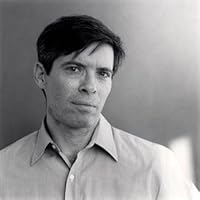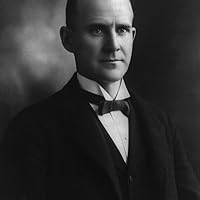Capitalist Quotes
Quotes tagged as "capitalist"
Showing 1-30 of 48

“The capitalist and consumerist ethics are two sides of the same coin, a merger of two commandments. The supreme commandment of the rich is ‘Invest!’ The supreme commandment of the rest of us is ‘Buy!’ The capitalist–consumerist ethic is revolutionary in another respect. Most previous ethical systems presented people with a pretty tough deal. They were promised paradise, but only if they cultivated compassion and tolerance, overcame craving and anger, and restrained their selfish interests. This was too tough for most. The history of ethics is a sad tale of wonderful ideals that nobody can live up to. Most Christians did not imitate Christ, most Buddhists failed to follow Buddha, and most Confucians would have caused Confucius a temper tantrum. In contrast, most people today successfully live up to the capitalist–consumerist ideal. The new ethic promises paradise on condition that the rich remain greedy and spend their time making more money and that the masses give free reign to their cravings and passions and buy more and more. This is the first religion in history whose followers actually do what they are asked to do. How though do we know that we'll really get paradise in return? We've seen it on television.”
― קיצור תולדות האנושות
― קיצור תולדות האנושות

“Because subjects like literature and art history have no obvious material pay-off, they tend to attract those who look askance at capitalist notions of utility. The idea of doing something purely for the delight of it has always rattled the grey-bearded guardians of the state. Sheer pointlessness has always been a deeply subversive affair.”
―
―

“Do you know why people like me are shy about being capitalists? Well, its because we, for as long as we have known you, were capital, like bales of cotton and sacks of sugar, and you were commanding, cruel capitalists, and the memory of this so strong, the experience so recent, that we can't quite bring ourselves to embrace this idea that you think so much of. As for hat we were like before we met you, I no longer care. No periods of time over which my ancestors held sway, no documentation of complex civilisations, is any comfort to me. Even if I really came from people who were living like monkeys in trees, it was better to be that than what happened to me, what I became after I met you.”
― A Small Place
― A Small Place

“Buffett was a billionaire who drove his own car, did his own taxes, and still lived in a home he had bought in 1958 for $31,500. He seemed to answer to a deeply rooted, distinctly American mythology, in which decency and common sense triumphed over cosmopolitan guile, and in which an idealized past held firm against a rootless and too hurriedly changing present.”
―
―

“To say that "the worker has an interest in the rapid growth of capital", means only this: that the more speedily the worker augments the wealth of the capitalist, the larger will be the crumbs which fall to him, the greater will be the number of workers than can be called into existence, the more can the mass of slaves dependent upon capital be increased.”
― Wage-Labour and Capital & Value, Price and Profit
― Wage-Labour and Capital & Value, Price and Profit
“Capitalism is a social system owned by the capitalistic class, a small network of very wealthy and powerful businessmen, who compromise the health and security of the general population for corporate gain.”
― Rise Up and Salute the Sun: The Writings of Suzy Kassem
― Rise Up and Salute the Sun: The Writings of Suzy Kassem

“Buffett's uncommon urge to chronicle made him a unique character in American life, not only a great capitalist but the Great Explainer of American capitalism. He taught a generation how to think about business, and he showed that securities were not just tokens like the Monopoly flatiron, and that investing need not be a game of chance. It was also a logical, commonsensical enterprise, like the tangible businesses beneath. He stripped Wall Street of its mystery and rejoined it to Main Street -- a mythical or disappearing place, perhaps, but one that is comprehensible to the ordinary American.”
― Buffett: The Making of an American Capitalist
― Buffett: The Making of an American Capitalist
“Neoliberalism insists that if we work hard enough, we can earn as much money as anyone else. Of course, the concept of meritocracy is integral to neoliberalism and erases the reality of capital itself, that capitalism is not just material capital but also, importantly, social and cultural capital. Without these forms of capital, (p. 77) one cannot, in fact, “succeed” in a capitalist culture. One obvious example is the art world, where one can only have their work shown in a gallery if they have connections to that gallery (galleries do not, for the most part, accept unsolicited submissions). All the cash in the world can’t create the generations of social connections of a middle-class family, whose circle might include art collectors, gallerists, critics, and artists. It is also the values and unspoken rules of the ruling class that distinguish who is allowed in and who is not.”
― The Melancholia of Class: A Manifesto for the Working Class
― The Melancholia of Class: A Manifesto for the Working Class

“The capitalist of our day, who is the social, economic and political successor of the feudal lord of the Middle Ages, and the patrician master of the ancient world, holds the great mass of the people in bondage, not by owning them under the law, nor by having sole proprietorship of the land, but by virtue of his ownership of industry, the tools and machinery with which work is done and wealth produced. In a word, the capitalist owns the tools and the jobs of the workers, and they are his economic dependents.”
― Walls and Bars: Prisons and Prison Life in the Land of the Free
― Walls and Bars: Prisons and Prison Life in the Land of the Free

“...capitalism is too important and complex a subject to be left to economists. Achieving a critical comprehension of it requires perspectives beyond those characteristic of modern economics. That is why this is a history not of economic ideas, but of ideas beyond the capitalist economy.”
―
―

“سأل الرئيس الأمريكي الرب قائلا : متي ستصبح أمريكا شيوعية ؟ فأجاب الرب : ليس في عهدك ...
و سأله كسترو : متي ستصبح كوبا رأسمالية ؟ فأجاب الرب : ليس في عهدك..
و سأله أخيرا الرئيس البرازلى : متي ستتخلص البرازيل من نكبة قروضيها ؟ فأجاب الرب : لا أعتقد أن ذلك سيتم في عهدي ...”
― سنوات المتاهة
و سأله كسترو : متي ستصبح كوبا رأسمالية ؟ فأجاب الرب : ليس في عهدك..
و سأله أخيرا الرئيس البرازلى : متي ستتخلص البرازيل من نكبة قروضيها ؟ فأجاب الرب : لا أعتقد أن ذلك سيتم في عهدي ...”
― سنوات المتاهة

“The truth is, Japan is headed for crisis. We are in the hands of greedy businessmen and weak politicians. Such people will see to it poverty grows every day.”
― An Artist of the Floating World & The Remains of the Day
― An Artist of the Floating World & The Remains of the Day
“Living as a slave to unchecked personal desire and subjugated to external circumstances is wearisome. It is a common error to devote a person’s life to earning money. While money relives us from the stress of suffering from deprivation, moneymaking will not make us happy. A person must have passion in life in order to achieve any degree of personal bliss.”
― Dead Toad Scrolls
― Dead Toad Scrolls

“The rule that governs the behaviour of all capitalists is, then, 'accumulation for accumulation's sake, production for production's sake' (Capital, vol. 1, p. 595). And this rule, enforced by competition, operates independently of the individual will of the capitalist. It is the hallmark of individual behaviour, and thereby stamps itself as the distinguishing characteristic of all members in the class of capitalists. It also binds all capitalists together, for they all have a common need: to promote the conditions for progressive accumulation.”
― The Limits to Capital
― The Limits to Capital

“The future throws a bridge toward the past, over the gaping abyss of capitalist non-culture.”
― On Changing the World: Essays in Marxist Political Philosophy, from Karl Marx to Walter Benjamin
― On Changing the World: Essays in Marxist Political Philosophy, from Karl Marx to Walter Benjamin

“You, monstruos exploiter, measure your steps, because if you don’t, you may fall into the precipice of your own egotism or into the abyss of your own errors!
(From "Mi Opinion")”
―
(From "Mi Opinion")”
―
“Every man has a starting capital in life and it is called worth or self-worth.”
― Create Your Own Net Worth
― Create Your Own Net Worth

“What should happen and what actually happens... Seems so true for small organisations business.. Initially the promoters make their associates dream of the trickle down once business grows and assign a glass of hope but later the size of upper cup grows to kill the trickle down effects.. #ProfitMaximization and #Greed of business growth is killing small businesses..”
― 21 Day Target and Achievement Planner [Use Only Printed Work Book: LIFE IS SIMPLE HENCE SIMPLE WORKBOOK
― 21 Day Target and Achievement Planner [Use Only Printed Work Book: LIFE IS SIMPLE HENCE SIMPLE WORKBOOK

“Success is no accident or serendipity. I had all the odds against me, and I crushed each and everyone along the way. Not because I was a Democrat or a Republican. Not because of my attitudes about social issues. Not because of what my background is or isn’t. Not because people think I’m a nice guy. I succeeded because I’m a capitalist, I’m an entrepreneur, and I’m a warrior. That is the mindset I want to teach others so they can create their own wealth and American success story.”
―
―

“Some say the socialist way is better, others say the capitalist way is better, I say, learn to be a human first, then whatever way you choose, will produce prosperity.”
― Girl Over God: The Novel
― Girl Over God: The Novel

“Capitalists rule the world, because civilians lay low. Politicians rule the world, because civilians lay low.”
― Mücadele Muhabbet: Gospel of An Unarmed Soldier
― Mücadele Muhabbet: Gospel of An Unarmed Soldier

“Since the 1950s, several democratically elected socialist governments have nationalized large parts of their extractive sectors and begun to redistribute to the poor and middle class the wealth that had previously hemorrhaged into foreign bank accounts, most notably Mohammad Mosaddegh in Iran and Salvador Allende in Chile. But those experiments were interrupted by foreign-sponsored coups d’etat before reaching their potential. Indeed postcolonial independence movements — which so often had the redistribution of unjustly concentrated resources, whether of land or minerals, as their core missions — were consistently undermined through political assassinations, foreign interference, and, more recently, the chains of debt-driven structural adjustment programs (not to mention the corruption of local elites).”
― This Changes Everything: Capitalism vs. The Climate
― This Changes Everything: Capitalism vs. The Climate

“A New York Times/CBS News poll conducted in early 1992 showed that
public opinion on welfare changed depending on how the question was
worded. If the word “welfare” was used, 44 percent of those questioned said
too much was being spent on welfare (while 50 percent said either that the
right amount was being spent, or that too little was being spent. But when the
question was about “assistance to the poor,” only 13 percent thought too much
was being spent, and 64 percent thought too little was being spent.
This suggested that both parties were trying to manufacture an antihumanneeds mood by constant derogatory use of the word “welfare,” and then to
claim they were acting in response to public opinion. The Democrats as well
as the Republicans had strong connections to wealthy corporations. Kevin
Phillips, a Republican analyst of national politics, wrote in 1990 that the
Democratic Party was “history’s second-most enthusiastic capitalist party”
― A People’s History of the United States: 1492 - Present
public opinion on welfare changed depending on how the question was
worded. If the word “welfare” was used, 44 percent of those questioned said
too much was being spent on welfare (while 50 percent said either that the
right amount was being spent, or that too little was being spent. But when the
question was about “assistance to the poor,” only 13 percent thought too much
was being spent, and 64 percent thought too little was being spent.
This suggested that both parties were trying to manufacture an antihumanneeds mood by constant derogatory use of the word “welfare,” and then to
claim they were acting in response to public opinion. The Democrats as well
as the Republicans had strong connections to wealthy corporations. Kevin
Phillips, a Republican analyst of national politics, wrote in 1990 that the
Democratic Party was “history’s second-most enthusiastic capitalist party”
― A People’s History of the United States: 1492 - Present

“Recognizing the significant good that capitalists can bring about for society does not blind us to the serious harms that they can sometimes create or perpetuate in society.”
― The Capitalist and the Activist: Corporate Social Activism and the New Business of Change
― The Capitalist and the Activist: Corporate Social Activism and the New Business of Change

“Just as humans are neither all good nor all bad, their institutional and collectively efforts at capitalism and activism are neither all good nor all bad.”
― The Capitalist and the Activist: Corporate Social Activism and the New Business of Change
― The Capitalist and the Activist: Corporate Social Activism and the New Business of Change

“Capitalist enterprises and activist enterprises are ultimately both human enterprises. They reflect the contradictions, complexities, and richness of the human beings that create them, own them, patronize them, move them, work for them, and manage them. They are imperfect and impure, just like the dedicated flawed people behind them. Too much progress has been needlessly impeded by arbitrary notions of purity and perfection.”
― The Capitalist and the Activist: Corporate Social Activism and the New Business of Change
― The Capitalist and the Activist: Corporate Social Activism and the New Business of Change

“The profit-first, profit-only view of business under the Reagan Revolution raised new concerns about the social obligations of corporations beyond shareholders to constituencies like employees, creditors, customers, and local communities. This was motivated in part by the fact that despite significant stock market increases and income growth for the wealthy, many working-class Americans were left behind in the economic growth.”
― The Capitalist and the Activist: Corporate Social Activism and the New Business of Change
― The Capitalist and the Activist: Corporate Social Activism and the New Business of Change

“Guy: „Hey, isn't that Karl up there?“
Mr. Kyu: „You know Marx? Very good.“
Guy: „A bit... Doesn't everybody?“
Mr. Kyu: „Oh no, not many capitalists do.“
Guy: „Really.”
― Pyongyang: A Journey in North Korea
Mr. Kyu: „You know Marx? Very good.“
Guy: „A bit... Doesn't everybody?“
Mr. Kyu: „Oh no, not many capitalists do.“
Guy: „Really.”
― Pyongyang: A Journey in North Korea
All Quotes
|
My Quotes
|
Add A Quote
Browse By Tag
- Love Quotes 98k
- Life Quotes 76.5k
- Inspirational Quotes 73.5k
- Humor Quotes 44k
- Philosophy Quotes 30k
- Inspirational Quotes Quotes 27k
- God Quotes 26.5k
- Truth Quotes 24k
- Wisdom Quotes 23.5k
- Romance Quotes 23.5k
- Poetry Quotes 22.5k
- Death Quotes 20k
- Life Lessons Quotes 20k
- Happiness Quotes 19k
- Quotes Quotes 18k
- Hope Quotes 18k
- Faith Quotes 18k
- Inspiration Quotes 17k
- Spirituality Quotes 15k
- Religion Quotes 15k
- Motivational Quotes 15k
- Writing Quotes 15k
- Relationships Quotes 14.5k
- Life Quotes Quotes 14.5k
- Love Quotes Quotes 14k
- Success Quotes 13.5k
- Time Quotes 12.5k
- Motivation Quotes 12.5k
- Science Quotes 11.5k
- Motivational Quotes Quotes 11.5k



